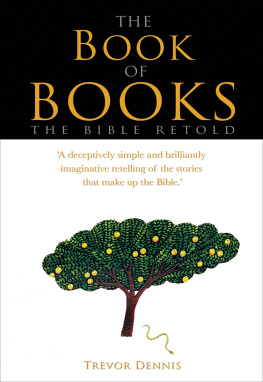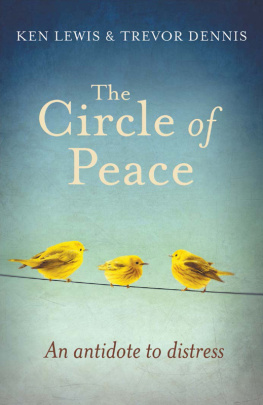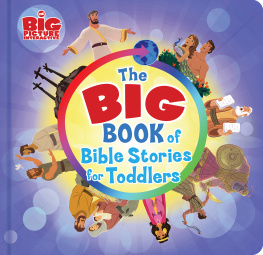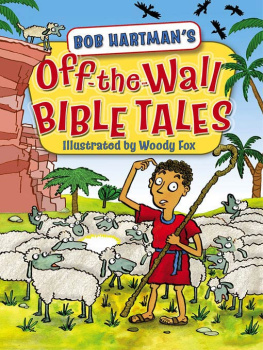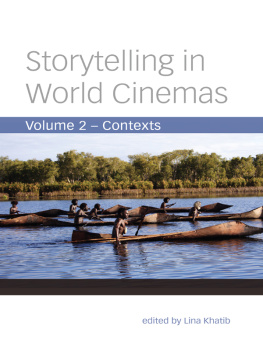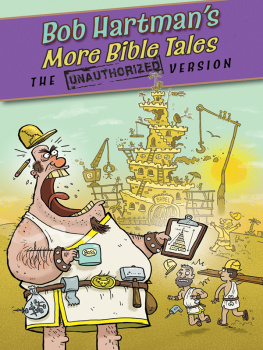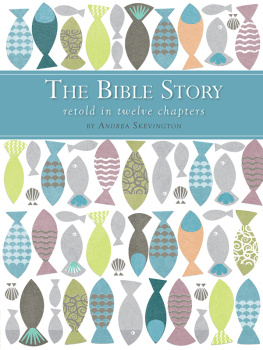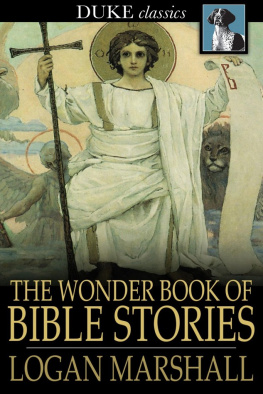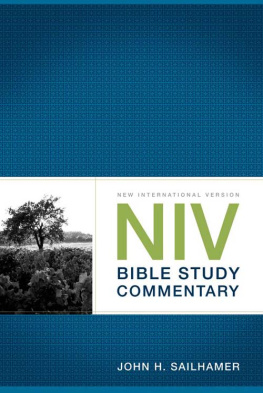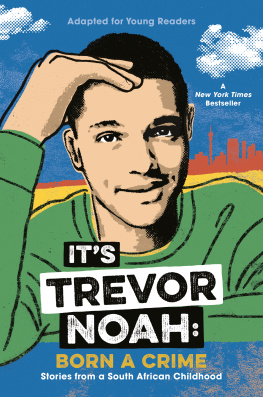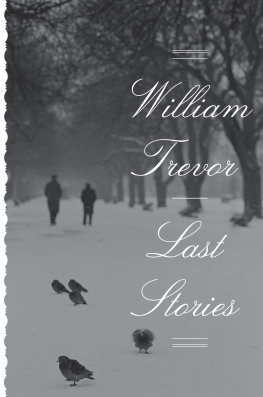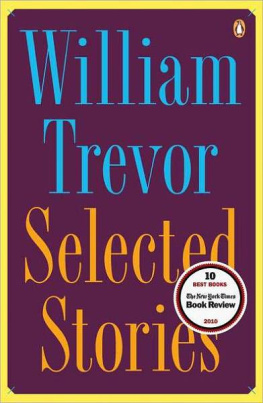A CKNOWLEDGMENTS
A BOUT THIS BOOK AND HOW IT CAME TO BE WRITTEN
It all began with other people. Philip Law and Lois Rock, both editors at Lion Publishing, had the idea that I should write a Bible for younger readers. I wasnt sure at first that I would be able to write the kind of book they described, but they persuaded me to have a go and I am very glad they did.
Lois became my editor. She was always encouraging, and the suggestions she made for improvements, both large and small, were always intelligent and perceptive.
Im also grateful to Olwen Turchetta, who did a great job of copy-editing the book.
There are two other people I have to thank specially. One is my eldest daughter, Eleanor, and the other is Judy Davies, the Education Officer at Chester Cathedral. Eleanor and Judy have much experience of teaching and working with children and young people. They agreed to read everything I wrote, and whenever I came to the end of a chapter, I showed it to them first. They were extremely helpful and encouraging all the way through, and I am so grateful for the trouble they took, that I have dedicated the book to them.
My wife, Caroline, and our other children, Sarah, Jo and Tim, and our son-in-law, John, also took a great interest in the book. Writing it was an exciting but daunting task, and I needed their love and encouragement also to keep me going. Im glad of this opportunity to say how much I owe them.
There are many other people who helped produce this book and made it possible for you to have a copy. These include: David Dean, who illustrated the book; Jacqueline Crawford, who designed it; and Sarah Toulmin, who advertised it. Without them my work wouldnt have come to anything, and you wouldnt have this book. I hope you enjoy it!

Trevor Dennis, C HESTER C ATHEDRAL , J ANUARY 2003
I NTRODUCTION
Who are we? Where did we come from? What makes us different? Why are we so special? Are we special? Everyone asks those questions. Two and a half thousand years ago the people of Israel asked those questions, and other questions too, such as: Why are we having such a hard time? Whats gone wrong? What is God up to? They lived in a small country at the eastern end of the Mediterranean Sea, and a very powerful people called the Babylonians had invaded, destroyed their towns and cities, killed a lot of them and taken thousands more into exile in Babylonia, hundreds of miles away to the east. They had taken their cattle, their goats and sheep as well, and ruined the crops, so the people left behind also had a terrible time.
The Babylonians said they were the best. The Babylonians said their gods were the best too. The Babylonians said the Israelites ought to think like Babylonians, live like Babylonians, feel like Babylonians, worship like Babylonians.
Some of the Israelites said, Weve got to do something, or this will be the end of us! Lets write a story, some others replied, our story, the story of our people, our land and our God. Lets collect together the stories weve been telling our children, and the stories we learned when we were children. Lets weave them together, and write some new ones, and tell a tale that our children will tell their children, and their children will tell their children, and so on and so on, for ever and ever!
And so they did, and we have that story still. Its in the Bible and stretches from the book of Genesis to the second book of Kings.
We dont know the names of any of the people who first told this story. Parts of it are very old, perhaps as old as three thousand years, perhaps older, but often we dont know the century when the individual stories were first composed, let alone the year. Some of them may have been composed by women, but it is clear that most of the storytellers were men. Unfortunately, there are no pieces by children. Most of the storytellers would have lived in the cities. Some of them were priests; some of them were merchants or landowners. A few of the stories may have come originally from the villages. The whole story cant have been finished till some time after the Babylonians invaded and took so many people into exile. We can be quite sure of that, because that is where it all ends.
But the Bible doesnt end there, and nor will this book. The people of Israel, or the Jews as they came to be called, told other stories and recited wonderful poems. Among the poets were prophets men and women who claimed to be able to see things as God saw them, and to speak with Gods voice. The people treasured the finest of their poems and passed them down from one generation to another. Some prophets, as we shall see, saw catastrophe coming and tried to help the people face up to it. During the exile in Babylon other prophets had marvellous visions of how God would rescue them and take them back home. After the exile had ended, the people rebuilt the temple in Jerusalem. A Jew called Nehemiah organized the rebuilding of the walls of the city and left behind his account of it for us to read. Nearly three hundred years after that, another foreign king threatened to wipe out the Jewish religion. In the book of Daniel we find stories told at that time about God coming to the rescue of his friends once again.
There are love stories in the Bible too, such as the tale of the remarkable friendship between two women called Ruth and Naomi, and of how Ruth came to marry a man named Boaz. And funny stories, such as the tale of the hopeless prophet called Jonah, who simply could not accept the truth about Gods forgiveness. There is also poetry. An anonymous poet, perhaps the finest poet in the whole Bible, wrote about a man called Job who lost almost everything and suffered a terrible illness, but finally saw God and was transformed by the vision. And in the temple in Jerusalem they sang sacred songs now known as psalms, some very old, some composed afresh after the exile.
You will find these stories and some of the poems and songs in this book.
When we have gone through those, we still wont have reached the end. We will be leaving behind what Christians call the Old Testament, or Jews Tanakh (for all these writings so far belong to the Jews Bible as well as the Christians Bible). But then we will come to four more Jewish storytellers, called Matthew, Mark, Luke and John, who wrote about a Jew named Jesus of Nazareth. They claimed that the coming of Jesus marked a new beginning, not just for their fellow Jews, but for the entire world. If you want to have the clearest picture of what God is like, they said, then look at Jesus, look at the way he lived, and particularly the way he died, and listen to the stories he told. Their books are called the Gospels, and for most Christians they are the most important books in the Bible.

